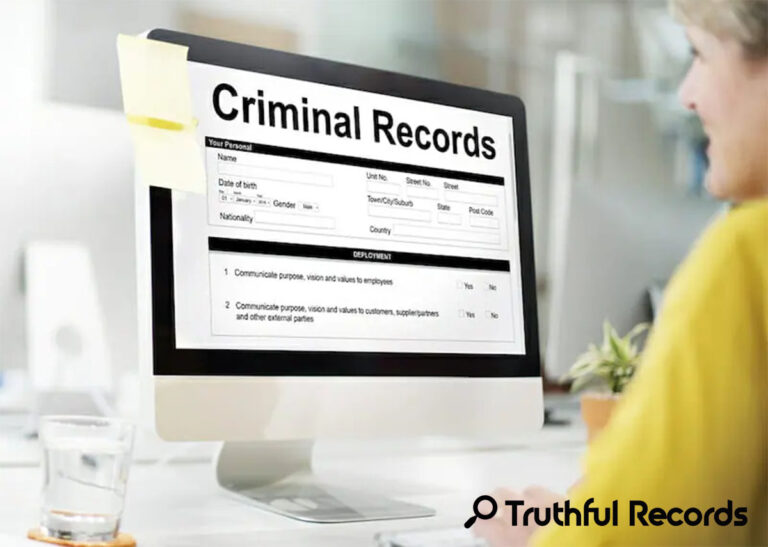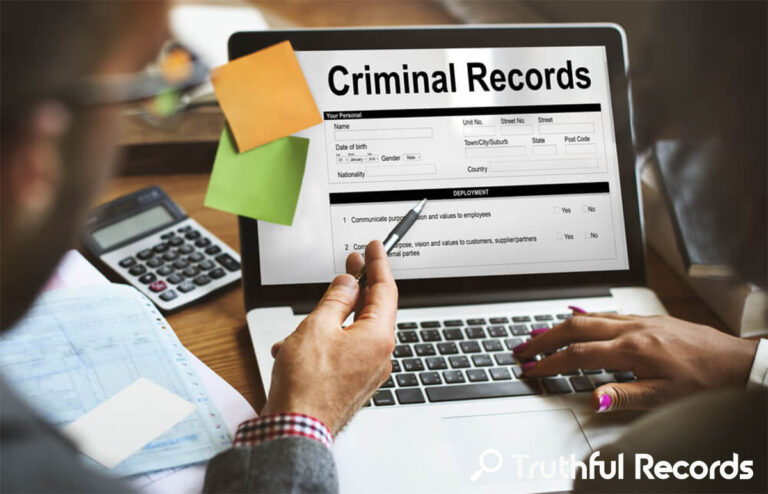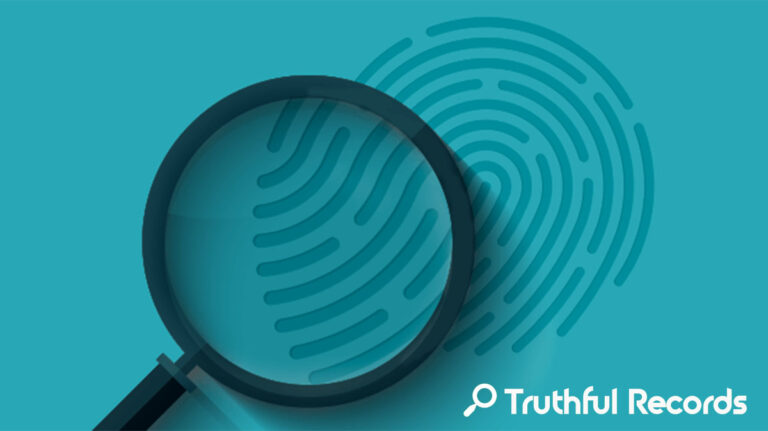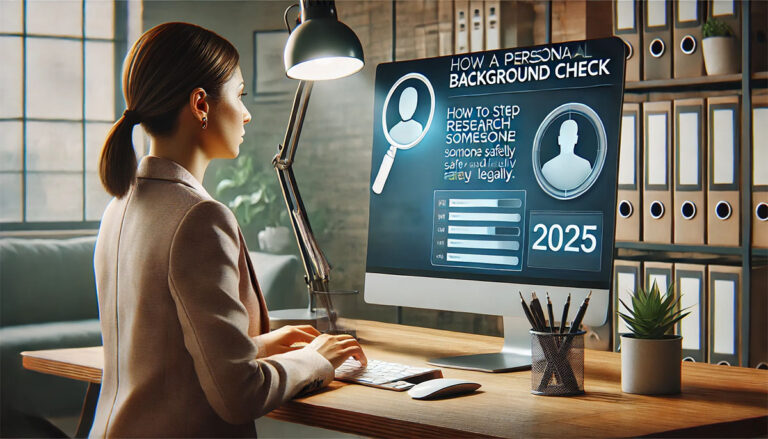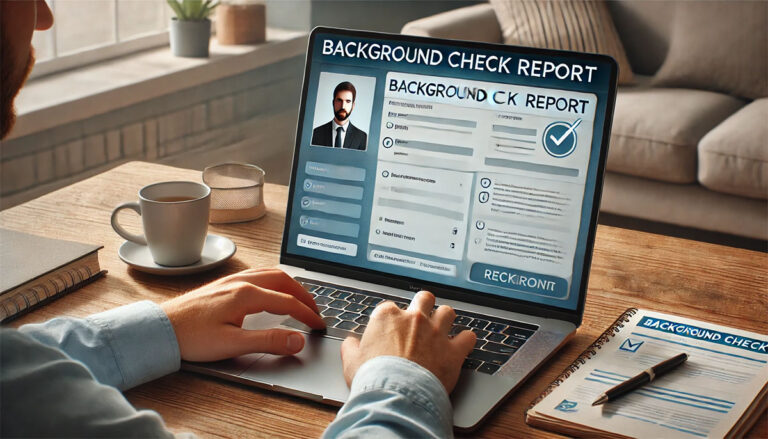How to Fix Background Check Errors: A Step-by-Step Guide

Did you know that even one mistake on your background check can cost you a job, apartment, or loan? Errors in background checks happen more often than you might think—about one in three reports have them! I’ve helped tons of people fix these frustrating issues, and now I’m here to guide you through the process of correcting them. Whether it’s a mix-up with your identity, old info, or a simple reporting mistake, this guide will help you take control and make sure your background check is spot on! Want to learn more? Check out this personal background check guide.
Understanding Background Check Errors

Background checks are a critical part of many processes like applying for jobs, renting apartments, or securing loans. But what happens when there’s an error in your background check? It’s more common than you might think! Understanding the types of errors that can occur and the potential impact they can have on your life is essential. Let’s break down what you need to know to identify and address any issues that might pop up in your report.
Common Types of Errors
There are several types of mistakes that can show up on a background check. Here are some of the most common:
- Personal information mistakes: Sometimes, simple errors like a misspelled name, incorrect address, or wrong birthdate can make their way onto your report. These may seem minor, but they can still cause major headaches, especially when the wrong information is linked to your record.
- Criminal record inaccuracies: If your criminal record is incorrect or outdated, it could have serious consequences. Sometimes, people with similar names or even mistakes in the database can lead to a criminal history being attached to your name. This is one of the most concerning errors, as it can impact everything from job opportunities to travel.
- Employment history errors: Employment history is a big part of many background checks, especially when applying for jobs. If your past employers, job titles, or employment dates are wrong, it could cost you a potential job. These errors can happen if records aren’t updated or if the information wasn’t accurately reported in the first place.
- Credit report discrepancies: Background checks often include credit reports, especially when you’re applying for loans or housing. If there’s outdated information, wrong balances, or even mistakes about your payment history, it could make you appear less trustworthy financially, affecting your approval chances.
Potential Impact of Errors
An error in your background check isn’t just an annoying mistake—it can have real-life consequences. Here’s how:
- Employment opportunities: Employers frequently rely on background checks to assess whether you’re a good fit for the role. An inaccurate criminal record, employment history, or personal information can lead to missed job opportunities. A mistake could even result in a job offer being rescinded.
- Housing applications: Landlords often run background checks to determine if you’re reliable and responsible. Errors, especially with your credit report or past addresses, could make you look like a higher-risk tenant, which might lead to your rental application being denied.
- Loan approvals: If you’re trying to secure a loan or mortgage, background checks usually include a credit report. Discrepancies in your credit history could lead to higher interest rates or even a denial of your application. Financial institutions want to see accurate, up-to-date information to ensure they’re lending to someone with good credit habits.
- Professional licensing: Many professions require background checks as part of the licensing process. If there’s inaccurate info, like a criminal record that doesn’t belong to you, it could delay or even prevent you from getting the license you need to practice in your field.
Legal Protections
Fortunately, there are laws in place to protect you if errors show up in your background check. Here’s what you need to know:
- FCRA rights: The Fair Credit Reporting Act (FCRA) gives you the right to dispute any errors in your background check, whether it’s a credit report, criminal record, or employment history. If a background check service doesn’t follow the correct procedure or provides incorrect information, you can take legal action.
- Consumer protection laws: Beyond the FCRA, consumer protection laws ensure that companies that provide background checks are fair and accurate. If an error affects your chances of employment, housing, or loans, these laws can help you hold the reporting agency accountable.
- Dispute resolution guidelines: If you find an error, the FCRA requires background check companies to investigate the issue within 30 days. You’ll need to provide proof of the error, like documents showing the correct information. Once resolved, the company must correct your record and send updated results to anyone who previously received the incorrect information.
Identifying Errors in Your Background Check
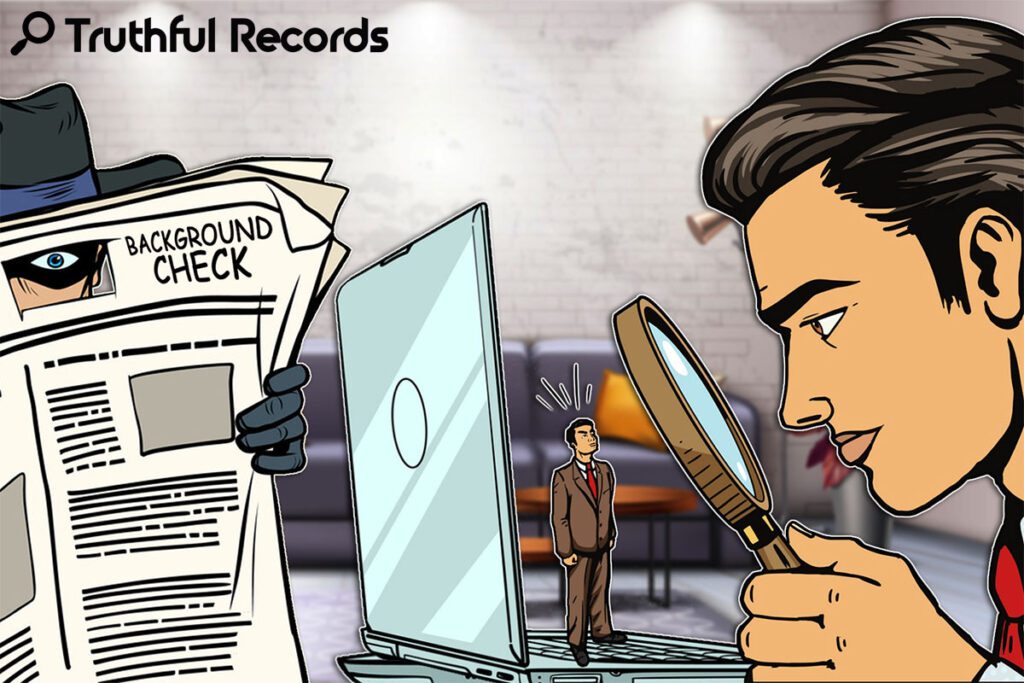
Finding errors in your background check can be frustrating, but the good news is that it’s something you can fix! The key is knowing how to spot mistakes before they cause any problems. Let’s walk through how to obtain your background report, review it carefully, and catch any red flags that might pop up.
Obtaining Your Background Report
Before you can start fixing any errors, you need to get your hands on your background check report. Here’s how to do it:
- Free report sources: Did you know that you’re entitled to a free credit report once a year? The official site to get your free reports from the three major credit bureaus (Equifax, Experian, and TransUnion) is AnnualCreditReport.com. This can give you a good look at your credit history and any criminal records that might be tied to you.
- Multiple provider checks: It’s a good idea to check reports from multiple background check providers to ensure you get a comprehensive view of your history. Different companies pull data from different sources, so what one report misses, another might catch. Some services, like Checkr or BeenVerified, provide detailed background checks for a small fee.
- Request methods: You can request your background report either online, by mail, or over the phone, depending on the provider. For criminal records and certain public records, you may need to reach out directly to local agencies or courthouses. If you’re unsure where to start, check the provider’s website for specific instructions.
Comprehensive Review Techniques
Once you’ve got your report, it’s time to dive in and review it thoroughly. Here’s how to do a comprehensive check:
- Line-by-line examination: Go through each section of your background check carefully. This includes personal details like your name, address history, criminal records, employment history, and more. Make sure that everything matches up with your official documents (like your ID, previous addresses, etc.).
- Cross-referencing documents: Use your official records (like tax returns, job applications, or court documents) to verify the information on your background check. For example, if your report lists a job you never held or an address you never lived at, check your personal records to see if there’s a mix-up.
- Verification checklist: Create a checklist to track the verification of key pieces of information. Check things like your job history, criminal records, and any financial or court-related details. If any item doesn’t line up, note it down for follow-up. This checklist will help you stay organized when disputing errors.
Red Flags to Watch For
When reviewing your background check, there are a few red flags that should immediately make you take a closer look. Here’s what to keep an eye out for:
- Incorrect personal details: This is one of the most common errors. Check that your name, date of birth, and other personal details are listed correctly. Even small mistakes, like a typo in your address or a misspelling of your name, can cause issues. If anything doesn’t match your official records, it’s time to dispute it!
- Unrecognized records: If you see criminal records, financial issues, or job history that don’t belong to you, that’s a huge red flag. This could mean that someone else’s information has been mixed up with yours. Check your personal records to confirm whether those details are yours, and if not, follow the dispute process to clear it up.
- Outdated information: Sometimes, background checks pull up old records that are no longer relevant, like past addresses or old criminal charges. If you find information that’s no longer accurate or important, be sure to point it out during your dispute process. Certain records may have a time limit on how long they can be reported (like criminal convictions), so make sure your background check is up-to-date.
- Duplicate entries: Duplicate records can happen when the same information is listed more than once. This might happen with job positions, addresses, or even criminal charges. Duplicate entries can make your background check look more complicated than it actually is, so make sure to highlight them and get them cleared up.
Preparing to Dispute Errors
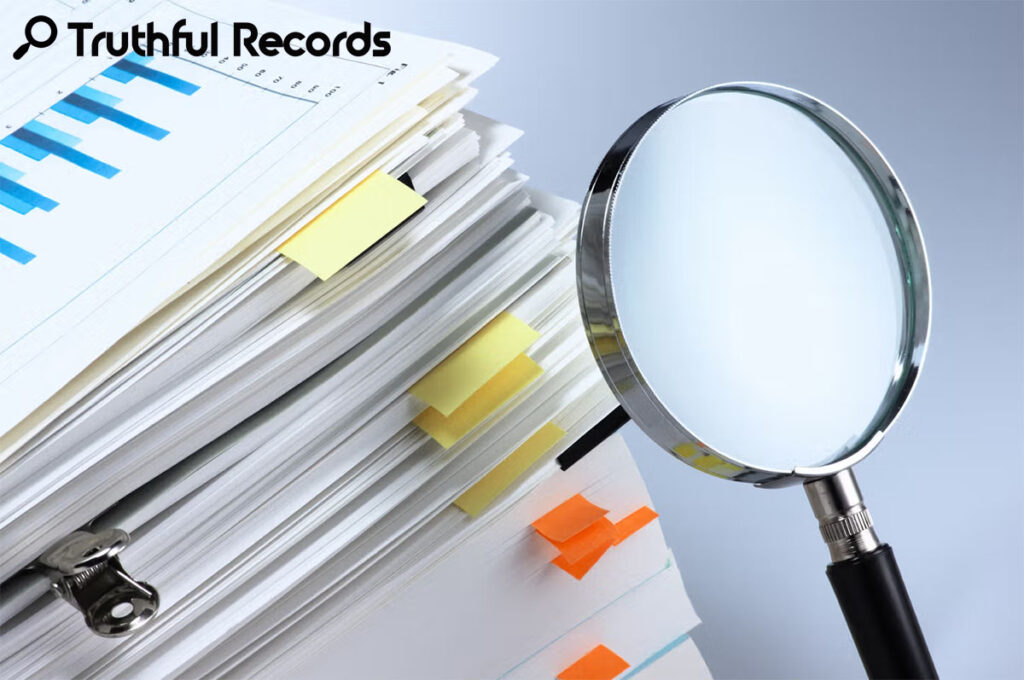
If you’ve found errors in your background check, the next step is to dispute them. The process may seem overwhelming at first, but with a bit of preparation, you can get everything straightened out quickly. Here’s how to prepare to dispute errors and make sure you have everything you need to get your records corrected.
Gathering Documentation
To successfully dispute an error, you need solid documentation to support your claim. Here’s what to gather:
- Personal identification: Start by collecting personal identification documents like your driver’s license, passport, or birth certificate. These will help prove that you are who you say you are and that the error is likely due to a mix-up with someone else or a typo in the system.
- Supporting evidence: For things like employment history or addresses, you’ll need proof of your past jobs or where you’ve lived. Gather pay stubs, W-2 forms, lease agreements, or utility bills to show the correct information. If it’s a criminal record mistake, court records or arrest reports can serve as supporting evidence.
- Legal documentation: If you’re disputing something more serious, like a court ruling or a criminal charge, you may need legal documentation. This could include court orders, dismissals, or official letters that explain the situation and prove your claim.
- Proof of inaccuracy: Lastly, gather anything that proves the error. If there’s an address listed that you’ve never lived at or a criminal charge that doesn’t belong to you, collect anything that directly disproves the error, like proof of residency or police reports clearing you of charges.
Creating a Dispute Package
Once you have all your documentation, it’s time to organize everything into a clear, concise dispute package. Here’s how to put it together:
- Organized documentation: Keep your documents organized so the background check company can easily follow along. Use folders or digital files to categorize the evidence—personal ID, employment history, court documents, etc. This will make it easier for the company to review your case.
- Clear explanation: Write a clear, simple explanation of what the error is and why you’re disputing it. Point out the specific inaccuracies and reference the supporting documents that prove your point. The clearer you make your case, the faster the process will go!
- Formal dispute letter: Include a formal dispute letter with your package. In this letter, include your full name, address, and any other identifying details. State your case clearly, providing all the necessary information. Be sure to request that the error be corrected and that the updated report be sent to any parties who received the incorrect report.
- Supporting evidence compilation: Attach all of your supporting documents to the dispute letter. These could be photocopies (not originals) of your ID, court documents, or any other proof of the error. This will back up your claim and make the process smoother.
Communication Strategies
When you’re ready to submit your dispute, communication is key. Here’s how to effectively handle the back-and-forth:
- Contacting background check companies: Contact the company that ran your background check. Most services have a dispute process on their website or customer service line. Be polite but firm, and provide all the required documentation. If they don’t respond within 30 days, follow up to ensure your dispute is being handled.
- Communicating with information sources: If the error stems from a source outside of the background check company (like a court or employer), reach out to them directly. Politely ask for clarification or correction of the information. Provide any proof that supports your claim, and follow up regularly to make sure the issue is resolved.
- Professional communication tips: Always remain professional in your communications, whether it’s with the background check company or other sources. Be concise, stick to the facts, and provide clear evidence. Avoid getting emotional or frustrated—keeping your cool will help you navigate the dispute process more effectively.
Dispute Process for Different Errors
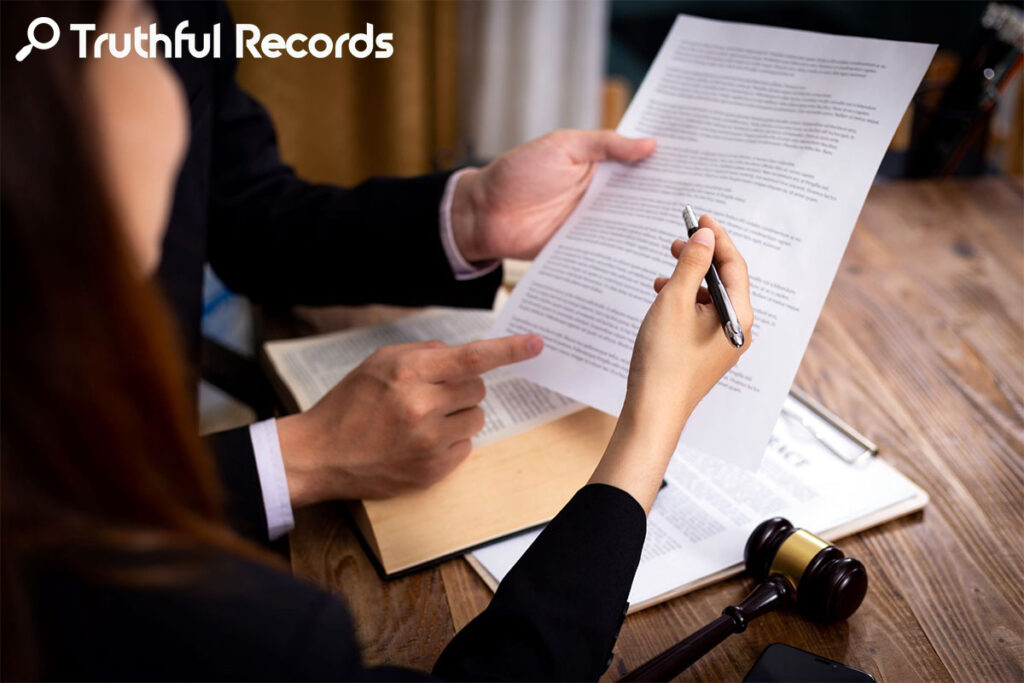
When you find errors on your background check, it’s crucial to understand the specific process for disputing them. Whether the error is related to criminal records, your credit history, or your employment and education, each type of error may require a different approach. Let’s break down how to handle disputes for each common error type!
Criminal Record Mistakes
If you’ve found inaccuracies in your criminal record, like charges that aren’t yours or outdated information, here’s how to go about correcting them:
- Court record verification: If the error involves a criminal conviction or arrest, start by verifying the court records. You’ll need to check if the charge is actually tied to you. Request a copy of the court documents related to the case. These documents will help you confirm whether the information on your background check is accurate. If it’s a mix-up, you can provide court documents as proof of the mistake.
- Expungement process: If the criminal record error involves a case that was expunged or sealed, you’ll need to provide documentation showing that the case was cleared. Expungement means the charge is legally removed from your record, and you have the right to dispute its inclusion in your background check. Submit the expungement order or court documents that prove the record should no longer be part of your background check.
- Challenging incorrect charges: If the charge isn’t yours, you need to show that it’s a case of mistaken identity. You might need to prove that your name or other identifying details were confused with someone else’s. In this case, gather any documentation (like ID verification or evidence of your whereabouts) that can show you weren’t involved in the crime.
Credit Report Discrepancies
Credit reports are often part of a background check, especially when you’re applying for loans, housing, or jobs. If you find discrepancies in your credit report, here’s how to dispute them:
- Credit bureau dispute process: Start by disputing the error with the credit bureau that reported it. The three major credit bureaus (Equifax, Experian, and TransUnion) each have their own dispute processes. You can usually do this online, and they are required to investigate the dispute within 30 days. Make sure to clearly indicate what’s wrong and provide documentation to support your claim.
- Documentation requirements: When disputing credit report discrepancies, you’ll need to provide documentation that shows the error. This could include bank statements, payment receipts, or official letters. If there’s an error with an account (like an incorrect balance or late payment), include proof of the correct payment history to help support your case.
- Follow-up procedures: After you’ve submitted your dispute, keep track of the status. The credit bureaus should notify you of their findings within 30 days, but it’s important to follow up if you don’t hear back. If the error isn’t corrected, you can escalate the dispute or file a complaint with the Consumer Financial Protection Bureau (CFPB).
Employment and Education Errors
Employment and education discrepancies are often linked to your job history or academic qualifications. If you spot mistakes here, you’ll need to take a few specific steps:
- Verification with previous employers: If there’s an error in your employment history, like incorrect job titles or dates, contact your previous employers or HR departments to verify the details. Request a copy of your employment record or an official letter confirming your job history. If the employer made an error, they should be able to update their records and provide proof for your background check.
- Academic record checks: If your background check contains errors in your educational history, like incorrect degrees or schools, reach out to your alma mater for verification. Request a transcript or confirmation letter from the school that verifies your degree and attendance dates. Some schools may have a formal process for disputing or correcting records, so follow their guidelines carefully.
- Correction documentation: Whether it’s employment or education, make sure to gather and submit documentation that proves the correct information. For job history, this could be pay stubs, offer letters, or performance reviews. For education, a diploma or transcript can serve as proof of your academic credentials.
Navigating the Dispute Resolution
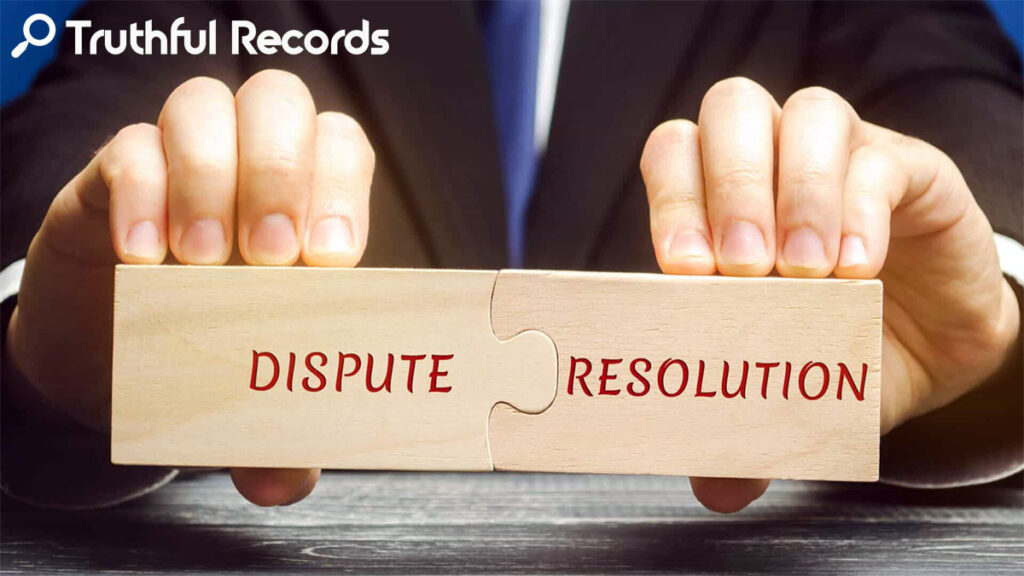
Disputing errors on your background check can be a bit of a process, but if you know the steps to take and how to stay on top of things, you’ll be able to resolve issues more efficiently. Here’s a step-by-step guide to navigating the dispute resolution process, from filing your dispute to escalating if necessary.
Filing Formal Disputes
When you find an error in your background check, the first step is filing a formal dispute. Whether you’re disputing a credit report, criminal record, or employment history, here’s how to handle it:
- Online dispute methods: Most background check companies and credit bureaus allow you to file disputes online. It’s usually the quickest way to get the ball rolling. You’ll need to create an account, locate the disputed item on your report, and submit the correct information along with any supporting documentation. Keep a record of your dispute request for reference.
- Written dispute procedures: If you prefer to go the old-school route, you can file a written dispute. This can be done via mail to the company or agency that provided the incorrect information. Be sure to include your full name, address, and a clear explanation of what’s wrong. Attach any proof you have, like court records, employment verification, or bank statements. Sending it via certified mail is a good idea so you have proof it was received.
- Required documentation: Along with your dispute request, you’ll need to provide documents that support your claim. For example, if you’re disputing a criminal charge, you’ll want to include court records showing the charge was dismissed. If it’s an employment issue, include pay stubs or employment verification. The more proof you provide, the better your chances of getting the dispute resolved quickly.
Following Up
After you’ve filed your dispute, it’s important to follow up to make sure everything is progressing smoothly.
- Tracking dispute status: Keep an eye on the status of your dispute. Most companies and credit bureaus offer tracking tools that let you monitor the progress of your case. You’ll be notified if they need additional information or if a decision has been made. Checking in periodically can ensure that your dispute isn’t forgotten or delayed.
- Request for investigation: If you don’t get a response within the expected timeline (usually 30 days for credit reports and background checks), reach out to request an investigation update. Sometimes, things get stalled, so don’t hesitate to follow up. Be polite but firm when requesting a status update.
- Response timelines: According to the Fair Credit Reporting Act (FCRA), companies must respond to disputes within 30 days. If you haven’t heard anything by that point, you can reach out to ask for a resolution or escalate the issue. Always keep a record of your communications for reference.
Escalation Procedures
If you’re not getting anywhere with your dispute, or if the resolution isn’t in your favor, there are escalation steps you can take.
- Appealing decisions: If the company resolves your dispute in a way that isn’t satisfactory, you can often appeal the decision. Some background check providers or credit bureaus allow you to submit additional evidence or explain your case further. Check their process for filing an appeal and be prepared to provide more documentation if necessary.
- Legal recourse: If you’ve exhausted all dispute avenues and still haven’t gotten the correct information, you may need to explore legal recourse. You have the right to sue for damages if inaccurate information is harming your reputation or employment prospects. Consult with a consumer protection attorney to discuss your options.
- Consumer protection agencies: If the dispute process isn’t going well, you can reach out to consumer protection agencies like the Consumer Financial Protection Bureau (CFPB) or the Federal Trade Commission (FTC). These organizations can step in to help mediate disputes and ensure that background check companies or credit bureaus are complying with the law. Filing a complaint with these agencies might prompt a quicker resolution.
Preventing Future Errors

Once you’ve corrected any errors on your background check, the next step is to prevent future mistakes from slipping through the cracks. With regular monitoring, good documentation management, and understanding your legal protections, you can stay ahead of potential issues. Let’s dive into how to proactively manage your background check moving forward.
Regular Monitoring
Regularly reviewing your background check is one of the best ways to spot errors before they become big problems. Here’s how to stay on top of things:
- Periodic background check reviews: Make it a habit to check your background report at least once a year, or whenever you’re about to apply for a job, rent an apartment, or take out a loan. You can get free access to your credit report annually, and some services allow you to check criminal records and employment histories as well. This keeps you aware of any mistakes that might pop up.
- Proactive error prevention: Stay proactive by double-checking any records or details that are likely to be checked in the future. For example, regularly confirm your personal details, job history, and credit report to ensure they’re always up-to-date. If you notice something off, you can address it quickly before it impacts you.
- Monitoring services: Consider using monitoring services that track changes to your background information or credit report. Many services offer alerts when something changes, like a new entry on your credit report or updates to your criminal record. Signing up for these services can help you stay informed in real-time.
Documentation Management
Keeping your personal documents organized is crucial for managing background check errors and updates. If you’re diligent about maintaining your records, you’ll be better prepared to correct mistakes when they arise. Here’s how:
- Record-keeping strategies: Keep all important documents related to your background—things like employment records, tax forms, court orders, and credit reports. Organizing these documents in physical or digital folders will make it easier to reference them when needed and provide proof of any corrections.
- Maintaining updated information: Whenever something changes in your life—like a new address, job, or legal situation—make sure your records are updated with the appropriate agencies. Keeping things current will help ensure that your background check reflects the most accurate information. This includes updating your credit bureaus, government agencies, or employers about any major changes.
- Proof of corrections: After resolving any errors in your background check, keep copies of all the documents related to the corrections. This includes court documents, emails, or formal letters showing that the issue was addressed. Keeping this proof on hand will make future disputes easier and faster to resolve if needed.
Legal Protection Strategies
Understanding your legal rights and how to protect yourself is an important part of preventing future errors. Here’s what you can do:
- Understanding your rights: Familiarize yourself with your rights under the Fair Credit Reporting Act (FCRA) and other consumer protection laws. These laws give you the right to dispute inaccurate information and require companies to investigate errors. Understanding your rights helps ensure that you can take swift action if an error appears.
- Preventative measures: Consider taking steps to protect your personal information to prevent errors in the first place. This includes safeguarding your social security number, monitoring your credit regularly, and being cautious about sharing your personal details online. Identity theft is a major contributor to background check errors, so taking steps to protect your info can prevent a lot of headaches.
- Professional assistance options: If you find yourself dealing with recurring errors or complex legal issues, it might be time to consult a professional. Attorneys who specialize in consumer protection laws can help you navigate disputes and ensure your background information is accurate. Additionally, credit repair services or background check specialists can offer ongoing assistance with monitoring and correcting errors.
Conclusion
Fixing errors on your background check isn’t just about dealing with paperwork—it’s about protecting your personal and professional reputation! By following the steps in this guide, you’ll be able to confidently clear up any mistakes and make sure your background check reflects your real history. Just remember, persistence and keeping your documentation in order are key to getting it all sorted. Take action now to secure your future!

